Sokoine University of Agriculture students worked in multi-disciplinary teams to find innovative solutions for unsustainable small-scale forestry during the MCL campaign in 2023. Read the short stories below to get insights how everything was done!
Story 1: Stakeholder co-involvement
We were visited by stakeholders with extensive knowledge of the plantation forests of the Southern Highlands of Tanzania, with knowledge of experimenting with different types of plantation tree species, and geospatial technologies. They were essential in helping students refine their list of practical issues. Together, they were able to communicate the difficulties and offer crucial insights into the knowns, unknowns, and complexities unique to the area. Stakeholders actively participated in validating suggested solutions, which helped shape actionable problems for both individuals and groups.
In addition to scholarly refinement, stakeholders—such as the Forest Development Trust-shared useful tools, such as the "Site Species Matching Tool (SSMT)" for large-scale investors, which demonstrated how solutions could be turned into profitable business opportunities. From it, graduate students learned entrepreneurial skills, with a focus on how it might be used to close service gaps for smallholder farmers. Students' academic lives were enhanced by this all-encompassing experience, which also gave them the confidence to think about entrepreneurship as a way to solve problems in the real world and generate jobs.
Story 2: Our unforgettable community day
We had an epic journey from Morogoro in central Tanzania to Mafinga Town Council in the southern part of the country, our mission was nothing short of extraordinary. We set out to explore into the world of Small-Scale Plantation Forestry, seeking to understand the challenges and problems that the local communities and experts face.
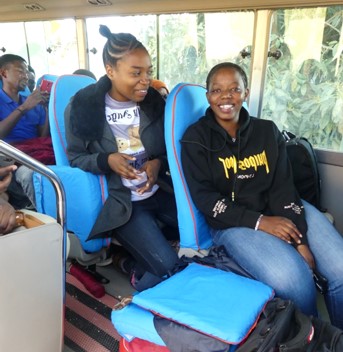
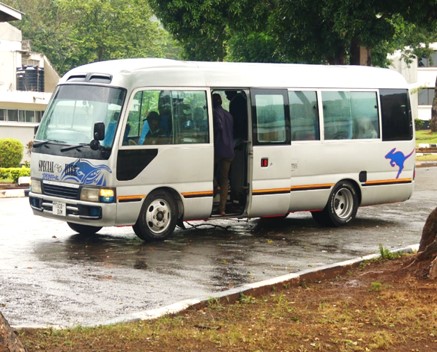
We rented a private bus for our community day that took us to our destinations. Students chatted and admired the sceneries during the bus drive.
The journey to Mafinga felt like a fascinating story, as students and mentors excitedly took in the beautiful scenery and amazing features of grasslands, woodlands, national parks, and stunning mountain forests. Along the way, we came across woodlots and plantations displaying a diverse range of plantation tree species, transforming what might have been a simple trip into an unforgettable adventure.
Upon arrival, the District Forest Officers generously shared a wealth of information, shedding light on the small-scale plantation forests and the dedicated individuals known as small-scale tree growers. Equipped with this invaluable knowledge, our students gained a profound understanding of the umbrella challenges.
Our trip took an exciting turn as we ventured into Rudilo village, where we had the privilege of meeting the local residents, we call them "Problem and Solution Owners" i.e. the small-scale tree growers. Engaging with a group of 31 passionate tree growers, our students conducted a focused and insightful group discussion using a prepared checklist, extracting essential information that would become the foundation for their mission.
Armed with a draft of the actionable problems and potential solutions, the students eagerly sought input from the local experts, refining their ideas with the wisdom gained from those deeply rooted in the forestry community. Adding a hands-on element to our adventure, students actively participated in essential forest management practices, such as pruning and spot weeding.
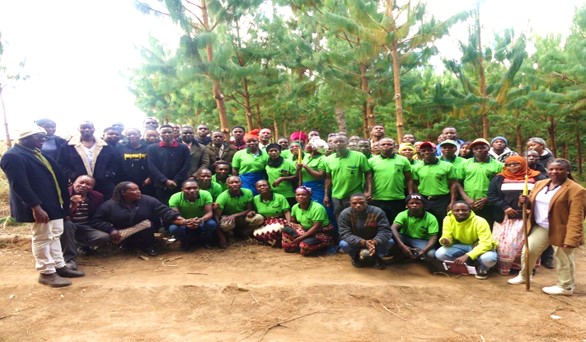
Group photo time! Sokoine University of Agriculture students wo participated in the MCL challenge, together with staff, and forestry community members.
This trip was a revelation, an eye-opening experience that instilled in our students the belief that they possess the capability to offer geospatial and digital solutions, propelling small-scale plantation forestry towards sustainability.
Story 3: Student success and best challenge
Use of global forest watch: Global Forest Watch (GFW) is an online platform that provides near-real-time monitoring of the world's forests. It is a collaborative initiative led by the World Resources Institute (WRI) in partnership with various organizations, including but not limited to Google and the University of Maryland. The platform utilizes satellite technology, remote sensing, and crowdsourced data to generate information for sustainable forest management. In the MCL 2.0 students used global forest watch to generate spatial distribution maps for fire prone areas in small-scale plantation forests of Tanzania.
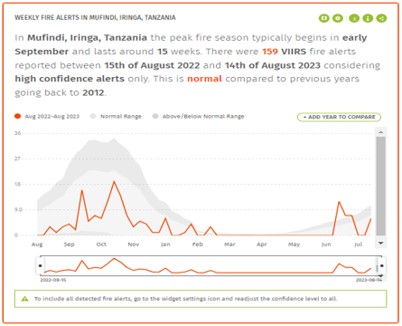
Informative graphs of forest fires in Mufindi, Iringa region.
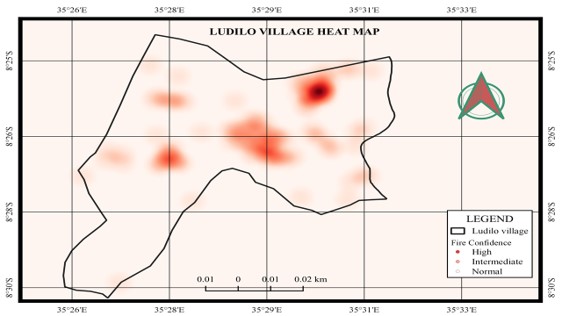
Example of the fire prone areas in Ludilo village.
Story 4: Geospatial empowerment with MCL training
At Sokoine University of Agriculture (SUA), students prepared for the Multi-Competence Learning (MCL) Challenge with a week of intensive training led by Tony from Open Map Development Tanzania (OMDTZ). The senior expert focused on learning for impact, by enhancing the geospatial skills of MCL participants. The week-long training covered geospatial data formats, mobile data tools, QGIS software, and platforms like Google Earth.
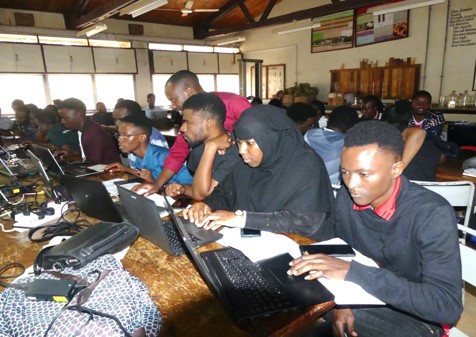
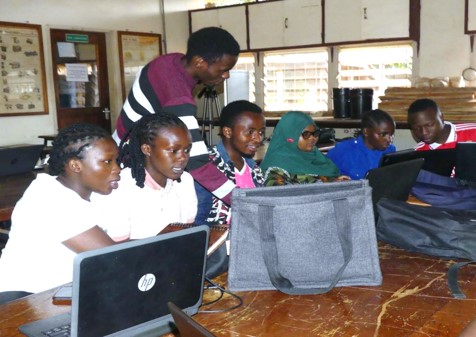
Hands-On Insight and Shared Enthusiasm: In-class theoretical exercises and practical made the learning experience dynamic and engaging. Tony discovered the students' genuine enthusiasm for using GIS to solve community issues, setting the stage for a collaborative journey.
Empowered Minds, Shared Commitment: As the training week concluded, students were equipped with geospatial skills, ready for the MCL Challenge. The facilitator left with a deep appreciation for the students' eagerness to leverage GIS for community-driven impact.